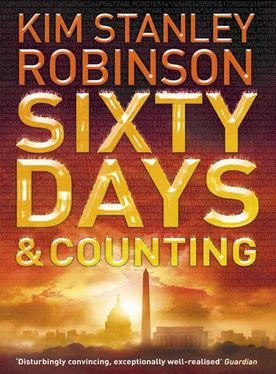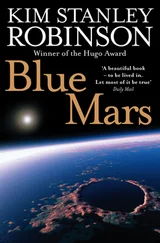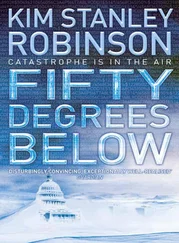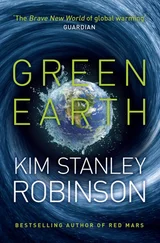‘So, some of what we do may look a little unconventional at first. And it may look more than a little threatening to those few who have been trying, in effect, to buy our government of the people, by the people, and for the people, and use it to line their own pockets while the world goes smash. But you know what? Those people need to change too. They’re out in the cold the same as the rest of us. So we will proceed, and hope those opposed come to see the good in it.
‘Ultimately we will be exploring all peaceful means to initiate positive changes in our systems, in order to hand on to the generations to come a world that is as beautiful and bountiful as the one we were born into. We are only the temporary stewards of a mighty trust, which includes the lives of all the future generations to come. We are responsible to our children and theirs. What we do now will reveal much about our character and our values as a people. We have to rise to the occasion, and I think we can and will. I am going to throw myself into the effort whole-heartedly and with a feeling of high excitement, as if beginning a long journey over stormy seas.’
‘Good,’ Charlie said into his phone. ‘He’s still saying the right stuff.’
‘Heck yes,’ Roy replied in his ear. ‘But you know the old saying: an ounce of law is worth a pound of rhetoric.’ Roy had made up this saying, and trotted it out as often as possible. He was seated on the opposite side of the viewing stands from Charlie and Joe, and Charlie thought he could just spot him talking into his cell phone across the way, but with all the hats and mufflers and ski masks bundling the heads of the audience, he could not be sure. Roy continued, ‘We’ll see if we can wag the dog or not. Things bog down in this town.’
‘I think the dog will wag us,’ Charlie said. ‘I think we are the dog. We’re the dog of the people, by the people and for the people.’
‘We’ll see.’ As chief of staff, Roy had already worked so hard on the transition that he had, Charlie feared, lost all sight of the big picture: ‘Everything depends on how the start goes.’
Charlie said, ‘A good start would help. But whatever happens, we have to persevere. Right, Joe?’
‘Go Phil! Hey, Dad? It’s cold.’
The transition team had concocted its ‘first sixty days’ – a gigantic master list of Things To Do, parceled out among the many agencies of the executive branch. Each agency had its own transition team and its own list, which usually began with a status report. Many units had been deliberately disabled by previous administrations, so that they would require a complete retooling to be able to function. In others, change at the top would rally the efforts of the remaining permanent staff, made up of professional technocrats. Each agency had to be evaluated for these problems and qualities, and the amount of attention given to them adjusted accordingly.
For Charlie, this meant working full time, as he had agreed back in November. Everyone else was up to speed and beyond, and he felt an obligation to match them. Up before sunrise, therefore, groggy in the cold dark of the depths of winter, when (Frank said) hominids living this far north had used to go into a dream state very close to hibernation. Get Joe up, or at least transferred sleeping into his stroller. Quick walk with Anna down to the Metro station in Bethesda – companionable, as if they were still in bed together, or sharing a dream; Charlie could almost fall back asleep on such a walk. Then descend with her into the Earth, dimly lit and yet still lighter than the pre-dawn world above. Slump in a bright vinyl seat and snooze against Anna to Metro Center, where she changed trains and they went up in elevators to the sidewalk, to have a last brisk walk together, Joe often awake and babbling, down G Street to the White House. There pass through security, more quickly each time, and down to the daycare center, where Joe bounced impatiently in his stroller until he could clamber over the side and plow off into the fun. He was always one of the first kids there and one of the last to leave, and that was saying a lot. But he did not remark on this, and did not seem to mind. He was still nice to the other kids. Indeed the various teachers all told Charlie how well he got along with the other kids.
Charlie found these reports depressing. He could see with his own eyes the beginning and end of Joe’s days in daycare, but there weren’t as many kids there at those times. And he remembered Gymboree, indeed had been traumatized by certain incidents at Gymboree.
Now, as everyone pointed out, Joe was calm to the point of detachment. Serene. In his own space. In the daycare he looked somewhat like he would have been during a quiet moment on the floor of their living room at home; perhaps a bit more wary. It worried Charlie more than he could say. Anna would not understand the nature of his concern, and beyond that … he might have mentioned it to Roy during one of their phone calls, back in the old days. But Roy had no time and was obsessed, and there was no one else with whom to share the feeling that Joe had changed and was not himself. That wasn’t something you could say.
Sometimes he brought it up with Anna obliquely, as a question, and she agreed that Joe was different than he had been before his fever, but she seemed to regard it as within the normal range of childhood changes, and mostly a function of learning to talk. Growing up. Her theory was that as Joe learned to talk he got less and less frustrated, that his earlier tempestuousness had been frustration at not being able to communicate what he was thinking.
But this theory presupposed that the earlier Joe had been inarticulate, and in possession of thoughts he had wanted to communicate to the world but couldn’t; and that did not match Charlie’s experience. In his opinion, Joe had always communicated exactly whatever he was feeling or thinking. Even before he had had language, his thoughts had still been perfectly explicit, though not linguistic. They had been precise feelings, and Joe had expressed them precisely, and with well-nigh operatic virtuosity.
In any case, now it was different. To Charlie, radically different. Anna didn’t see that, and it would upset her if Charlie could persuade her to see it, so he did not try. He wasn’t even sure what it was he would be trying to convey. He didn’t really believe that the real Joe had gone away as a result of the Khembalis’ ceremony for him. When Charlie had made the request, his rather vague notion had been that what such a ceremony would dispel would be the Khembalis’ interest in Joe, and their belief that he harbored the spirit of one of their reincarnated lamas. Altering the Khembalis’ attitude toward Joe would then change Joe himself, but in minor ways – ways that Charlie now found he had not fully imagined, for how exactly had he thought that Joe was ‘not himself,’ beyond being feverish, and maybe a bit subdued, a bit cautious and fearful? Had that really been the result of the Khembalis’ regard? And if their regard were to change, why exactly would Joe go back to the way he was before – feisty, bold, full of himself?
Perhaps he wouldn’t. It had not worked out that way, and now Charlie’s ideas seemed flawed to him. Now he had to try to figure out just exactly what it was he had wanted, what he thought had happened in the ceremony, and what he thought was happening now.
It was a hard thing to get at, made harder by the intensity of his new schedule. He only saw Joe for a couple of hours a day, during their commutes, and their time in the Metro cars was confined, with both of them asleep on many a morning’s ride in, and both of them tired and distracted by the day’s events on the way home. Charlie would sit Joe beside him, or on his lap, and they would talk, and Joe was pretty similar to his old self, babbling away at things outside the window or in his stroller, or referring to events earlier in his day, telling semi-coherent stories. It was hard to be sure what he was talking about most of the time, although toys and teachers and the other kids were clear enough, and formed the basis of most of his conversation.
Читать дальше












